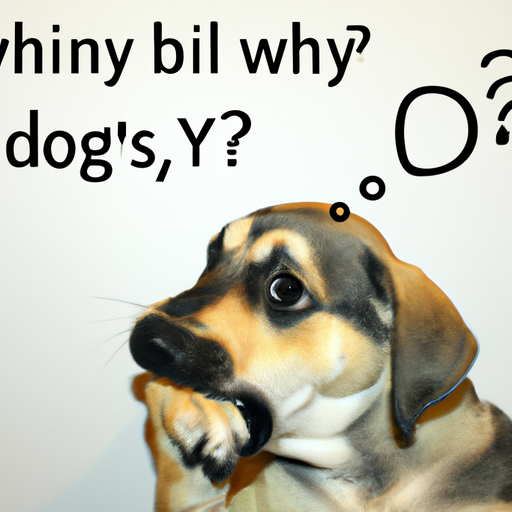If you’re a dog owner, chances are you’ve looked over to find your furry friend furiously gnawing at their paws. This behavior can be concerning, and you may be left wondering, “why do dogs gnaw on their paws?”
In this comprehensive guide, we’ll explore the reasons behind this habit, its potential dangers, and how you can help your pet.
Table of Contents
- Reasons Why Dogs Gnaw on Their Paws
- The Dangers of Chronic Paw Chewing
- How to Help Your Dog
- Frequently Asked Questions
Key Takeaways
- Paw gnawing can be due to a variety of reasons, including allergies, parasites, or pain.
- Chronic paw chewing can lead to serious health issues, such as infections.
- There are multiple ways to help your dog, including vet consultations, regular grooming, and distractions.
- Always consult with a professional if your dog’s paw gnawing becomes excessive.
Reasons Why Dogs Gnaw on Their Paws
-
Allergies: Just like humans, dogs can suffer from allergies. These can be environmental, like pollen or mold, or food-related. An allergic reaction often causes itching, leading your dog to gnaw on their paws for relief. You can learn more about dog allergies here.
-
Parasites: Fleas, ticks, and mites are common culprits behind paw gnawing. These tiny creatures can cause significant discomfort for your pup, leading them to chew on their paws.
-
Pain: If your dog is gnawing at their paw, it could be a sign of pain. This could be due to a splinter, a torn nail, or more serious issues like arthritis or tumors.
-
Boredom or Anxiety: Dogs, especially active ones, need mental and physical stimulation. Lack of exercise or mental stimulation can lead to boredom and stress, which can manifest as paw gnawing.
For more information on dog behavior, visit this page.
The Dangers of Chronic Paw Chewing
Chronic gnawing can lead to serious health issues. Infections can occur if your dog chews their paws raw, and the constant moisture from saliva can lead to yeast infections.
Hair loss and skin discoloration are also common in chronic paw chewers. Over time, this can result in permanent damage to the paw pads, leading to discomfort and mobility issues.
For more information on dog health, check out this article.
How to Help Your Dog
If your dog’s paw gnawing becomes excessive, it’s essential to consult with a professional. A vet can help identify the underlying cause and provide treatment options. Regular grooming can also help keep parasites at bay and ensure your dog’s paws are clean and healthy.
Providing your dog with plenty of exercise and mental stimulation can also help curb this behavior. Distraction tactics, like chew toys or puzzle games, can keep your dog’s mind and mouth busy.
For more tips on keeping your dog healthy and happy, visit this page.
Frequently Asked Questions
1. Is it normal for dogs to gnaw on their paws?
While occasional paw chewing can be normal grooming behavior, excessive or chronic paw gnawing is not. It can indicate underlying issues that need to be addressed.
2. How can I tell if my dog’s paw gnawing is a problem?
Look for signs such as raw or inflamed paws, hair loss, changes in paw color, limping, or changes in behavior. If you notice these signs, it’s time to consult a vet.
3. Can I use human medication to help my dog stop gnawing their paws?
Always consult with a vet before giving your dog any medication. Some human medications can be harmful or even lethal to dogs.
In conclusion, while paw gnawing can seem like a harmless habit, it’s important to be vigilant and address this behavior as it can be a symptom of a more serious issue. Remember, as a responsible dog owner, your pet’s health and comfort should always be a top priority.



